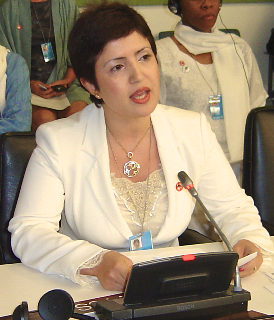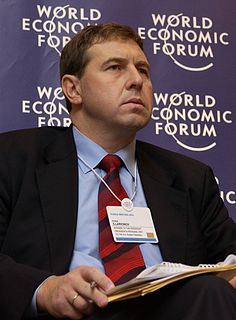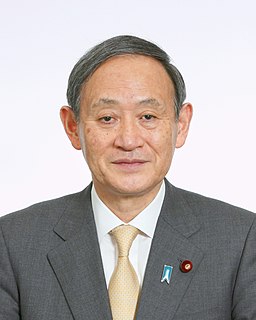A Quote by Rebecca MacKinnon
A number of countries, including Russia and China, have put forward proposals to regulate aspects of the Internet like 'crime' and 'security' that are currently unregulated at the global level due to lack of international consensus over what those terms actually mean or over how to balance enforcement with the protection of citizens' rights.
Related Quotes
Lack of accountability weakens the environmental and health rights of citizens; it damages peace- building and reconciliation initiatives; impedes the implementation of global health policies; leads to the loss of ecosystems and biodiversity; and weakens democracy, justice, human rights, and international security.
Human rights and international criminal law both illustrate the contradictory potential of international law. On one level, the imposition of human rights norms is a restraint on interventionary diplomacy, especially if coupled with respect for the legal norm of self-determination. But on another level, the protection of human rights creates a pretext for intervention as given approval by the UN Security Council in the form of the R2P (responsibility to protect) norm, as used in the 2011 Libyan intervention. The same applies with international criminal accountability.
The core of human rights work is naming and shaming those who commit abuses, and pressuring governments to put the screws to abusing states. As a result, human rights conventions are unique among international law instruments in depending for their enforcement mostly on the activism of a global civil society movement.
We are close to a consensus that the Kyoto Protocol does huge economic, political, social and ecological damage to the Russian Federation. In addition, it certainly violates the rights and freedoms of Russian citizens, and well as the rights and freedoms of citizens in those countries which signed and ratified it.
The U.S. ultimately decides what the national security threat is. They put Russia one, Iran two, China three - the terrorists are down the list. But it's amazing to me that we can still consider Russia a threat. On the contrary, they've been very helpful in the Middle East, trying to calm the situation and respect the rights of sovereign countries to exist. It's the U.S. that hasn't - whether in Serbia, the old Yugoslavia, in Africa, and now, Iraq.
The reality is that [Barack] Obama has some 15 countries in the current Libya coalition. President Bush put together close to 50 countries for the Afghan coalition, some 40 countries for the Iraqi coalition, more than 90 countries for the Proliferation Security Initiative and over 90 countries in the Global War on Terror.
The BRIC countries - Brazil, India, China, Turkey, South Africa, Indonesia even, and Russia - are now new actors. Over the last eight years, China multiplied by seven its economic presence and penetration in the Middle East. And if this happens on economic terms and there is a shift towards the East, the relationship between these countries and Israel is completely different from the United States. And it means that the challenges are going to be different, because China is not supporting Israel the way the U.S. are supporting Israel.
Experience has shown us that attempts to control the Internet will invariably fail. We should be instructed by the failed efforts of China to regulate political content, the efforts of America to regulate Internet gambling, or the efforts of Australia to regulate certain speech. By its very nature, the Internet will always resist such controls.
































